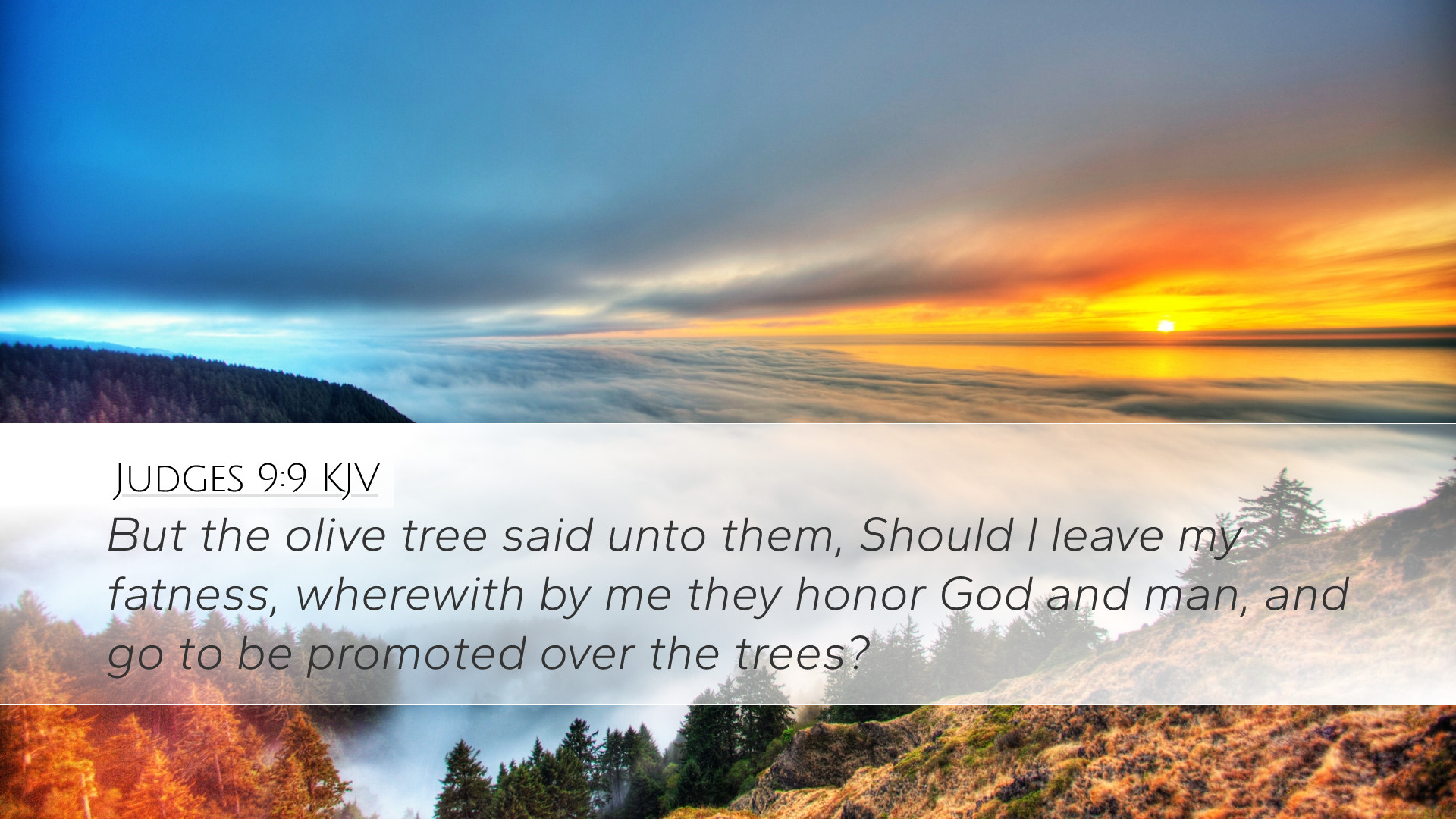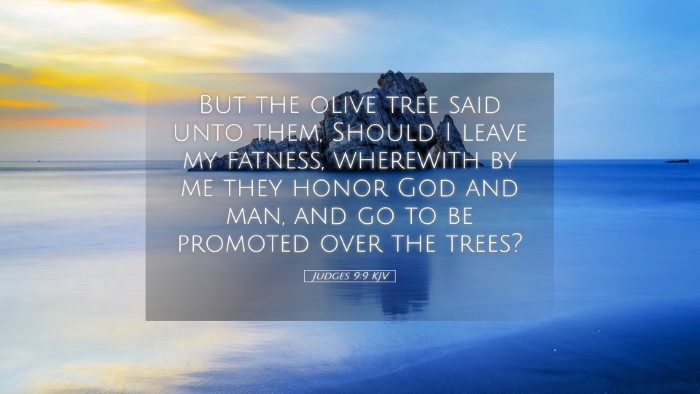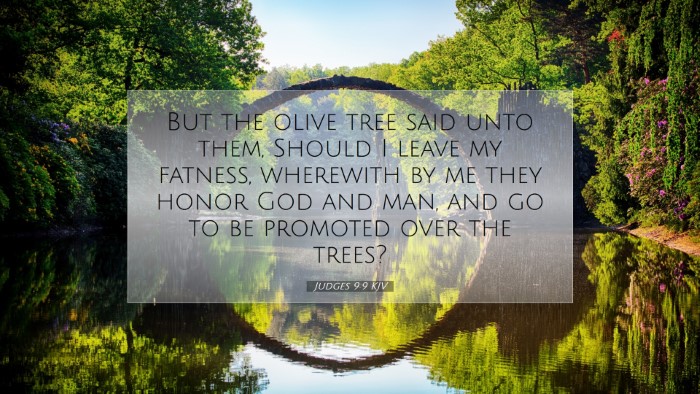Commentary on Judges 9:9
In Judges 9:9, we encounter a crucial moment in the narrative of Abimelech’s rise to power and the theological implications of leadership within Israel. This verse is part of a larger story that serves as a reflection on the consequences of choosing human kings over divine sovereignty. The insights drawn from the public domain commentaries of Matthew Henry, Albert Barnes, and Adam Clarke together lend a deeper theological and practical understanding to this text.
Text of Judges 9:9
"But the olive tree said to them, 'Should I cease giving my oil to be promoted over the trees?'"
Contextual Introduction
This verse comes during the parabolic discourse of Jotham, where he employs a fable to highlight the folly of the Israelites selecting Abimelech as their king. The olive tree, as one of the characters in this parable, symbolizes fruitfulness and utility, playing a critical role in the agricultural economy of Israel and its ceremonial life.
The Symbolism of the Olive Tree
The olive tree in biblical literature often represents peace, prosperity, and divine blessing due to its oil, which was used for sacred purposes and sustenance. Albert Barnes aptly notes that the olive tree reflects a high moral stature and distinctiveness in the decision-making of leaders. In this context, the olive tree possesses “the spirit of self-sacrifice,” as it refuses the offer to reign, prioritizing its essential role in nourishing and sustaining life over personal ambition.
The Choice of Leaders
Matthew Henry emphasizes the importance of divine calling versus human ambition in leadership. The olive tree’s refusal to abandon its purpose embodies the ideal of servant leadership, which is rooted in humility and selflessness. It offers a critique of Abimelech’s aspiration to rule, which stems from a corrupt desire for power rather than a genuine concern for the wellbeing of the people.
Characteristics of True Leadership
- Selflessness: Leaders like the olive tree serve their purpose for the benefit of others.
- Fruitfulness: True leaders produce good works and positive influence.
- Clarity of Purpose: The olive tree stands firm in its role rather than seeking to dominate.
Implications for Theological Reflection
Adam Clarke's commentary invites deeper theological reflection on the implications of this fable for spiritual leadership. The olive tree’s decision not to forsake its oil (the symbolic essence of its being) for the allure of kingship invites believers today to ponder what they are willing to sacrifice in the pursuit of power or status.
Lesson in Divine Sovereignty
The olive tree’s response alludes to God's sovereign design in choosing leaders. The Lord, who equips and calls, stands in contrast to the fickle desires of the human heart. When leaders aspire to positions for self-aggrandizement rather than for servitude to God’s people, they inevitably lead toward chaos and destruction, as evident in the cycles of judges described throughout the book of Judges.
The Contrast with Abimelech
The text serves to contrast the noble olive tree with the ignoble character of Abimelech, who seeks power through manipulation and violence. Barnes notes that the formation of kingship through human selection leads to instability. The olive tree's response can be viewed as a critique of Abimelech’s values and methodologies, portraying the perils of abandoning God’s ordained order of leadership for a self-serving agenda.
Modern Application for Pastors and Leaders
The narrative’s critique is profoundly applicable for contemporary church leaders and pastors. The rejection of oil for the sake of a crown speaks volumes to how spiritual leaders must hold their positions with humility and a focus on serving others. The pressures of church leadership often lead to the temptation of seeking personal recognition over comprehensive service to the flock.
Practical Takeaways
- Resist Ambition: Leaders are called to serve rather than seek prominence.
- Value Your Role: Like the olive tree, each leader should understand and value their contributions to the community.
- Focus on Fruits of the Spirit: Leadership is measured by the evidence of spiritual fruitfulness rather than mere authority.
Conclusion
Judges 9:9 encapsulates a profound theological narrative about leadership within the community of faith. The olive tree’s reluctance to relinquish its essential nature in pursuit of kingship invites both historical and contemporary audiences to reevaluate their understanding of power and influence. Abimelech’s rise signifies the often dire consequences of deviating from divinely appointed leadership, serving as a reminder that true authority flows from God and should reflect His nature—characterized by love, service, and integrity.


